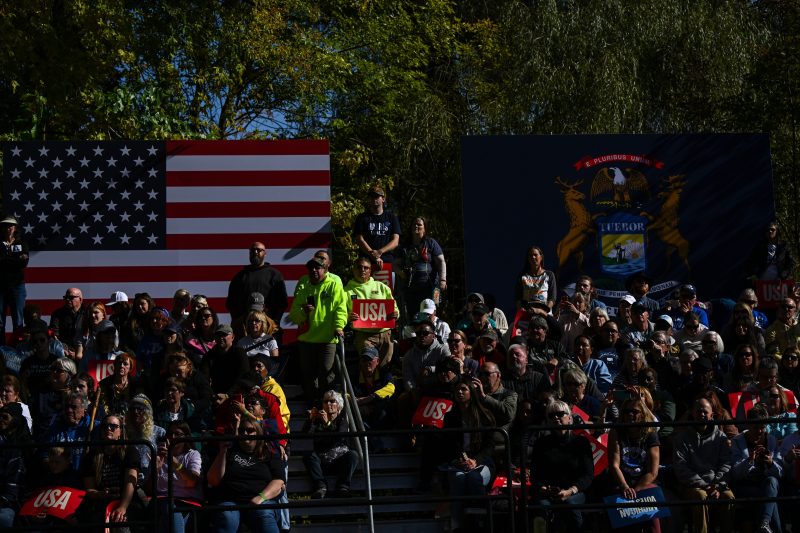In the battleground state of Michigan, the upcoming presidential election has intensively focused on winning the support of working-class voters. Both Vice President Kamala Harris and former President Donald Trump are strategically vying for an edge with this crucial voting bloc.
With Michigan historically being a key state in presidential elections, the battle for working-class votes has never been more significant. The outcome of the 2020 election showed the importance of these voters, particularly in Rust Belt states like Michigan where economic issues often take center stage.
Vice President Harris has been actively engaging with working-class communities in Michigan, highlighting her administration’s commitment to creating jobs, improving healthcare, and addressing economic disparities. She has emphasized investing in infrastructure, supporting small businesses, and raising the minimum wage as key elements of her economic agenda aimed at working-class voters.
On the other hand, former President Trump continues to maintain a strong base of support among working-class voters in Michigan. His populist appeal, promises to bring back manufacturing jobs, and focus on reviving the state’s struggling industries resonate with many in these communities. Trump’s emphasis on trade policies, including renegotiating trade deals and imposing tariffs, has garnered support from workers in sectors such as manufacturing and agriculture.
The divergent approaches of Harris and Trump reflect their contrasting visions for America’s economic future. While Harris emphasizes progressive policies and government intervention to support working-class Americans, Trump champions a more protectionist and nationalist economic agenda.
The battleground state of Michigan is likely to witness a fierce competition for working-class votes as both Harris and Trump strive to convey their messages effectively to resonate with these voters. Whether it’s addressing job losses, healthcare concerns, or the impact of trade policies, the candidates’ ability to connect with the needs and aspirations of working-class Michiganders will be pivotal in determining the outcome of the election.
In this high-stakes political landscape, the fight for an edge with working-class voters in Michigan underscores the significance of these voters in shaping the future of the state and the nation. The candidates’ strategies, messaging, and policies aimed at appealing to working-class communities will undoubtedly play a crucial role in determining who secures victory in this fiercely contested battleground state.
